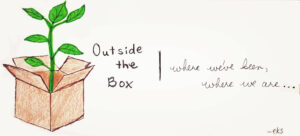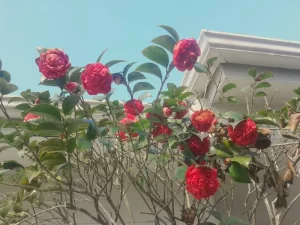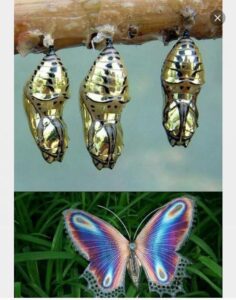Editorial Note: The following is reprinted with permission from Eleanor Skelton’s blog. It was originally published on May 18, 2019.

It only takes a few words to send me back. Certain phrases just set me off.
It can be something simple, so common that most average Christians wouldn’t even notice it. But those words meant something else in the fundamentalist cult I grew up in.
I go to a not-crazy church now because it’s helped me heal and find peace. Last week, I slipped into the service on my lunch break. I work two jobs and Sunday mornings are a time I get to stop and breathe.
The worship pastor was talking between the songs and he said something like “our joy is not based on the things of this world.”
My stomach dropped.
This is probably not what he meant, but this is what I felt. You’re not allowed to enjoy your life. Don’t be happy with the work you’re doing. You shouldn’t be proud of the awards you’ve won for journalism. The only thing that matters is heaven.
He didn’t say any of those things. If I asked him if he meant that, he probably would have looked at me bewildered.
This is all about context.
A catchphrase that means one thing in fundamentalist and even most evangelical churches doesn’t mean the same thing to mainstream, non-extremist Christian denominations.
Those who have been through spiritual abuse, especially growing up, are not going to hear what you are actually trying to say. I’ve had many conversations with my pastors about this, and they’ve been very understanding about translating for me. I’ll ask them, so this thing you said, did you mean this or something else? If you didn’t mean the legalistic interpretation I’m used to, what did you mean?
Some Bible verses were weaponized and used against me for my whole life. I have to work to reorient myself to their actual meaning. It’s a process of rewiring the connections in my brain, trying to find new associations.
I thought about that phrase again.
I’ve been going to yoga since not long after I was kicked out of my parents’ house. Yoga teachers usually ask you to take your mind off everything you feel like you have to do and just be, just for an hour. Just exist.
They tell you that your worth is not based on what you do, and it’s okay to just breathe. Their wording is different, so it doesn’t usually have a religious connotation for me.
I kept asking myself what a reasonable, healthy person would mean if they said our joy isn’t based on this world. They probably mean that your successes and failures at work or school don’t determine your worth as a person. That you’re more than your productivity. That life is made up of both tragedy and triumph and while it’s okay and necessary to grieve and feel all those emotions, you can reach out to hope beyond the exhaustion.
It would mean encouraging mindfulness, trying to lower stress.
Basically, the idea is don’t let temporary circumstances hinder you or define you. But that’s not what I first thought.
I still don’t like the phrase.
By definition, it plays into the evangelical “not being of this world but of another world” dynamic which brings up a host of other issues because of how it’s often interpreted, but it doesn’t have to mean what I was told as a child—that you couldn’t be an active part of your own life, that you couldn’t be present, you had to dissociate from your thoughts and feelings in your own mind because you were evil from birth, that enjoying ordinary experiences was a sin.
It’s been absolutely essential for me to parse out phrases like this to break free of the chains in my mind and find a deeper healing.
Maybe it will help someone else who is raw and healing too.
********
Shop at our Amazon store! As an Amazon Influencer, this website earns from qualifying purchases.



